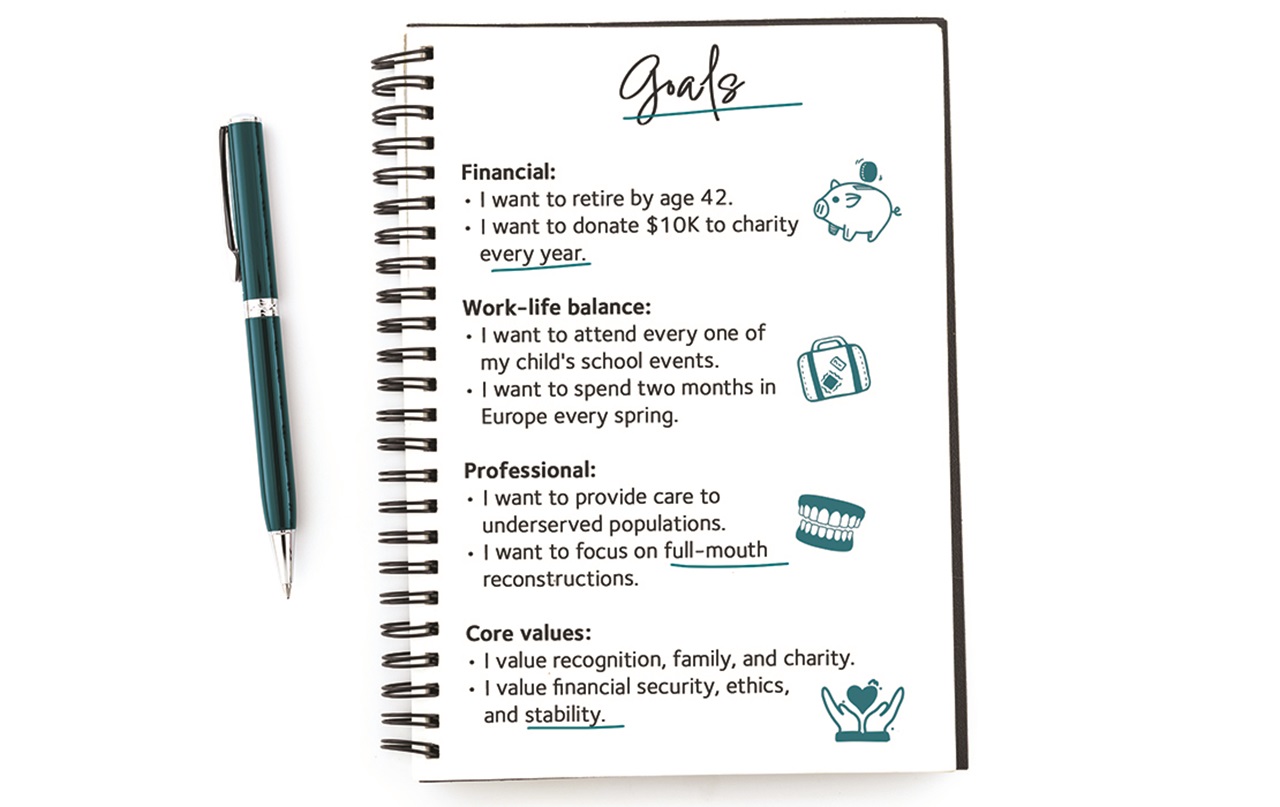My View: How to be a great leader, in and out of the operatory


We all hear about leadership skills. But why should you work on developing them? After all, you are a doctor first and foremost. Your clinical skills should determine your success, not your leadership skills. Right?
Think about this: Even if you’re renowned for your clinical skills, lacking the ability to effectively lead may cause you to lose patients and staff.
Great leaders inspire confidence and create loyalty within teams, which results in successful clinical and professional outcomes.
How to develop the skills to lead your practice
Start by developing your personal brand or mission statement. When you have a clear vision stating your values and goals, you have immediate clarity as to how to lead yourself and your team. In short, when you know that you need to enhance (not detract from) your brand, you will be equipped to provide clear, consistent, decisive decision making — one of the qualities of a great leader.
It is never too late. No matter what career stage you are in, think through your personal goals and write them down. For example:
Financial:
- I want to retire by age 42.
- I want to donate $10,000 to charity every year.
Work-life balance:
- I want to attend every one of my child’s school events.
- I want to spend two months in Europe every spring.
Professional:
- I want to provide care to underserved populations.
- I want to focus on full-mouth reconstructions.
Core values:
- I value recognition, family, and charity.
- I value financial security, ethics, and stability.
Once you have written down your goals, create a mission statement that reflects who you are and what you want to achieve. Once you are confident in your statement, review it frequently. When I started, I kept it on my desk so I would see it every day.
Your mission statement can become the primary tool you use to drive your decision making as you approach various situations.
For instance, when I graduated from dental school, I knew that I wanted to be in a practice that provided clinical excellence while being highly patient-centric and 100% fee-for-service. I also knew that I wanted to be present for my two young children. Financially, I literally wanted to “not have to worry about going to the grocery store.” Since there was no existing practice in the area that “fit” my personal vision and I was unwilling to move my growing family, I decided to build it myself. This was not the easy choice, but it was the one that allowed me to reach, and surpass, my objectives without compromising my vision.
Great leaders have engaged staff members
Today, many dentists have trouble hiring and retaining staff. Over 60% of owner dentists report staffing as a primary problem, despite the fact that many dentists have increased compensation substantially since 2020.
In my conversations with dental auxiliaries, hygienists and office managers, I see some common themes. Specifically, I often hear that the real reason for leaving is that team members do not feel supported by the dentist(s) in the practice. They feel that their career has stagnated and their contributions are not appreciated. Interestingly, they rarely talk about financial incentives (although many mention a lack of health insurance benefits as a key issue).
Great leaders manage to find ways to keep staff members engaged, leading to loyalty and retention. Honestly, it all comes back to being true to your vision.
Hire those who embrace your mission. The best way to retain staff starts long before their first day: find the right person for the practice rather than the first available person.
Specific skills can be trained, so it’s more important to fi nd a person with the right personality, a strong work ethic and similar expectations about the role.
My best team members had absolutely no dental experience when they started. I hired them based on their willingness to learn, ability to interact with patients, and desire to build their skills in ways that supported my, and the practice’s, mission.
No matter whether you are working with a new staff person or a long-standing one, be sure to invest in them. Invite them to voice their opinions and provide feedback, work with them to determine how to best develop their skills, treat them with respect, and provide clear direction and consistent feedback.
Then celebrate their successes, share positive comments from patients, and do little things to show your appreciation, like surprise treats or extra PTO. And make sure you look for ways to help staff achieve their own work life balance and professional goals.
Leadership doesn't stop at the office door
Great leaders bring their skills into all areas of their lives, including family and community. Bringing positive leadership to your life outside the office will ultimately bring you personal satisfaction along with professional success. Being a leader in the community will provide you with high-quality clients that lead to financial success, while giving you the personal satisfaction you long for.
Great leaders never stop looking for opportunities to improve, and it makes no difference when in your career you begin. Developing these skills will greatly improve the quality of your personal and professional interactions. As an added bonus, I hope that you will inspire loyalty in your current staff that encourages them to stay on, regardless of financial incentives.
Effective leaders are able to motivate, inspire, encourage excellence and positively connect with people, leading to success in the clinical, personal, and business realms. When you take the time to develop these critical skills, you can reap the rewards in and out of the operatory.
Writing this article has inspired me to reevaluate my own personal mission statement and reminded me of one of the most important qualities of great leaders — they never stop learning.
Dr. Ebert is the vice president of dental practice & relationship management at the ADA Business Innovation Group.



